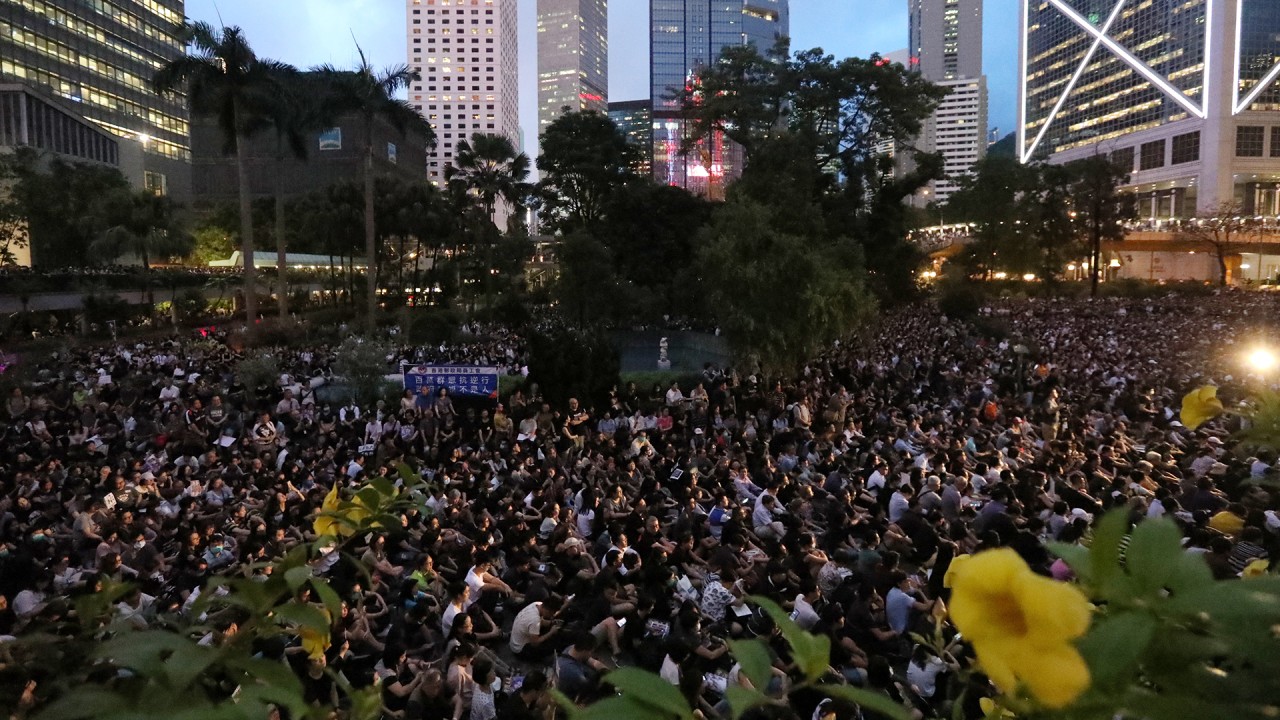
Hong Kong protests: union leader behind civil servant rally against extradition bill demands answers over his demotion at government department
- Michael Ngan, of Union for New Civil Servants, urges Labour Department to explain whether role change was politically motivated
- Civil Service Bureau says departments follow guidelines when employees take on new positions on an acting basis
He described his demotion this week as unusual and called on the government to explain the move and allay public concern over whether it was politically motivated.

03:06
Hong Kong’s civil servants, medical personnel rally against government handling of extradition bill crisis
In October, the labour officer took up a more senior post on an acting basis that saw his salary increase from about HK$30,000 to HK$50,000 (US$6,450) per month.
But the Labour Department on Wednesday told Ngan and seven colleagues on the same grade that they would return to their original positions with less pay from next month.
In a statement on Facebook on Thursday, Ngan said he doubted the department’s official account that the changes were based on “operational need”.
“If that was operational need, colleagues, in general, would have known about this when they started the [more senior post],” he said, adding those affected had not completed their first work appraisal.
Ngan urged Patrick Nip Tak-kuen, who took the helm of the Civil Service Bureau on April 22, to give a full and clear account of the decisions for the move.

Ngan’s choice to organise the rally, which drew an estimated 40,000 people on August 2, and form a new union has drawn ire from pro-establishment supporters. Some internet users have urged the public to file complaints against him.
Pro-Beijing media have also singled out Ngan for criticism and questioned why he was “promoted” in the first place.
The Union for New Civil Servants is one of several to emerge from the anti-government movement that sprang to life last summer in opposition to the extradition bill, which would have allowed the transfer of criminal suspects to mainland China and other jurisdictions with which the city does not have an exchange agreement.
Hong Kong civil servants embarrass government with extradition protest
The Civil Service Bureau said it would not comment on individual cases, but added that departments would follow relevant guidelines when deploying employees on an acting basis based on the requirements of the organisation.
The Labour Department said that serving in an acting capacity did not amount to a promotion.
Leung Chau-ting, chief executive of the Federation of Civil Service Unions, said it was hard to make a judgment on the move without knowing more about the posts, but he called on the government to exclude politics from manpower decisions.
“If his job performance has been excellent, why does he need to be ‘de-acted’? Politics is politics, work is work. If any employees break the law, the government can just catch and punish him,” he said.
On Sunday, the secretary for the civil service issued a call to government staff to strengthen their sense of national identity, raising eyebrows when he told them they served both the city and the country as a whole.
Separately, Nip revealed on Facebook on Wednesday that the online learning centre for civil servants had launched a page focusing on the national security law.
It would allow employees to “fully understand the purpose and meaning” of the legislation, he said, reiterating that safeguarding “one country” was the basis for implementing “one country, two systems”.

